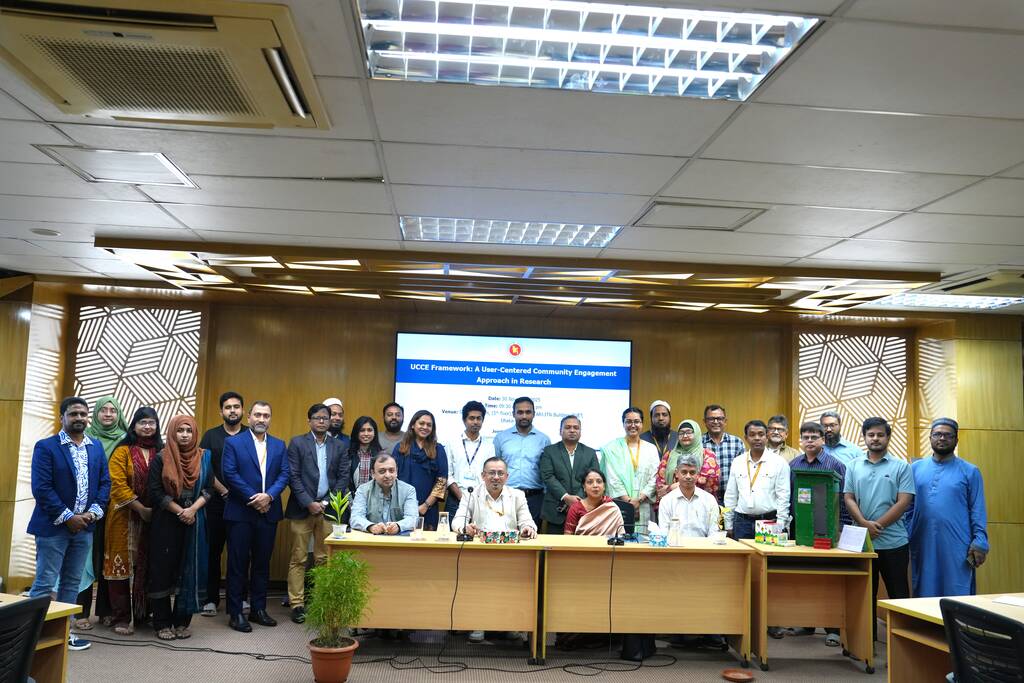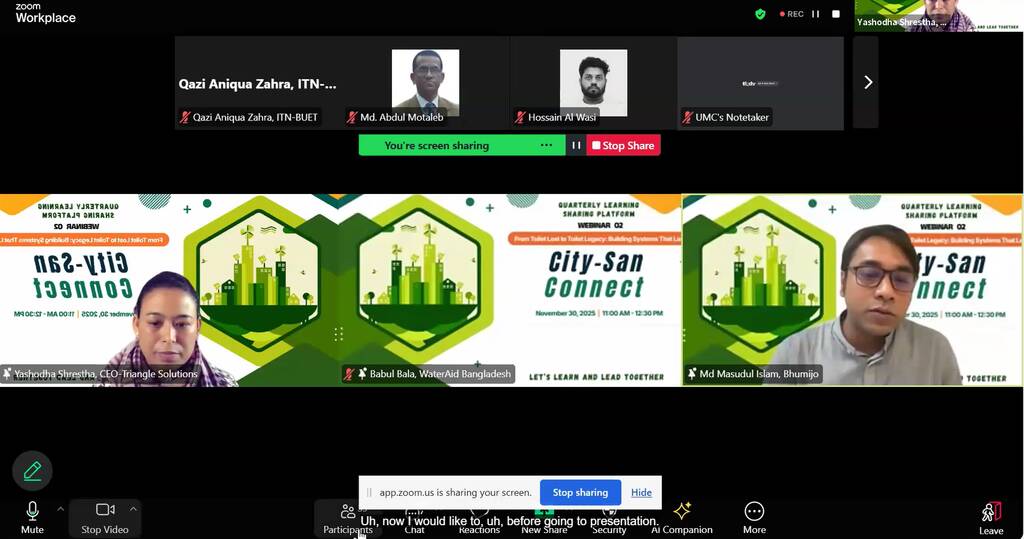ITN-BUET, with sector partners, is working together to transform the existing on-site sanitation technology in the cities. In collaboration with the United Nations International Children’s Emergency Fund (UNICEF), Bangladesh, and with technical support from technology providers, ITN-BUET organized ‘Training of Trainers (ToT) on Safely Managed On-Site Sanitation: Transformative Technological Solutions for City Dwellers’ at CCULB Resort & Convention Hall from 7 to 9 December 2024.
This initiative aimed to build trainers from Dhaka North, Dhaka South, Khulna, and Rajshahi City Corporations, along with representatives from Dhaka, Khulna, and Rajshahi WASAs, Charm Ltd., and Rajshahi University of Engineering & Technology (RUET). Twenty-seven individuals, comprising experts, engineers, waste management officers, conservancy officers, practitioners, and stakeholders dedicated to enhancing cities’ sanitation standards, participated in the event.
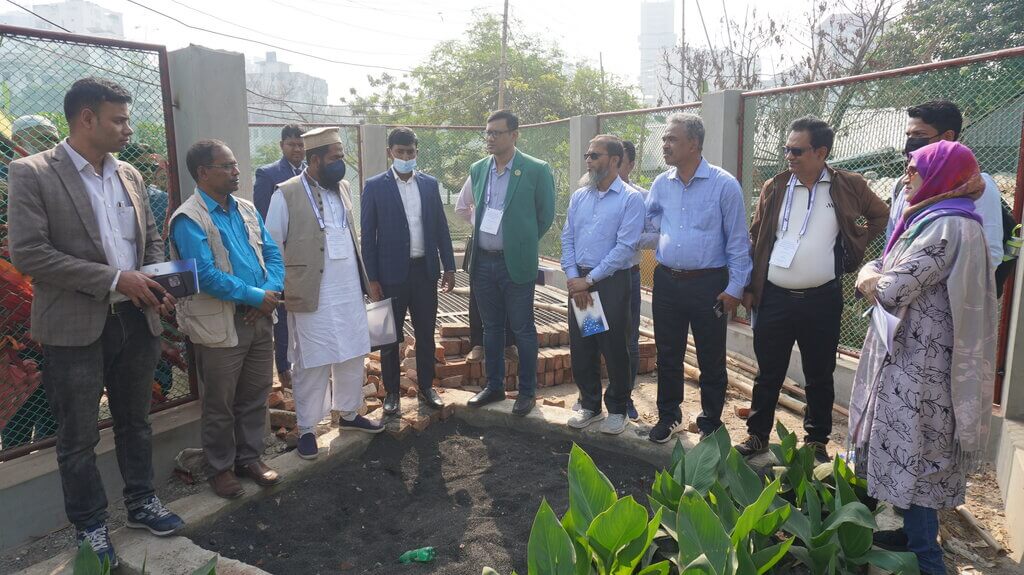
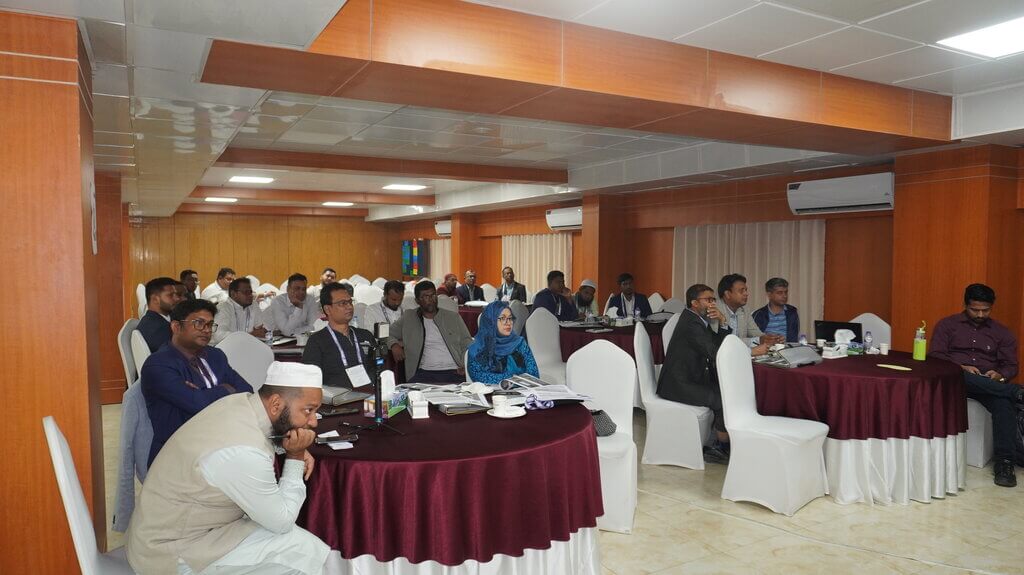
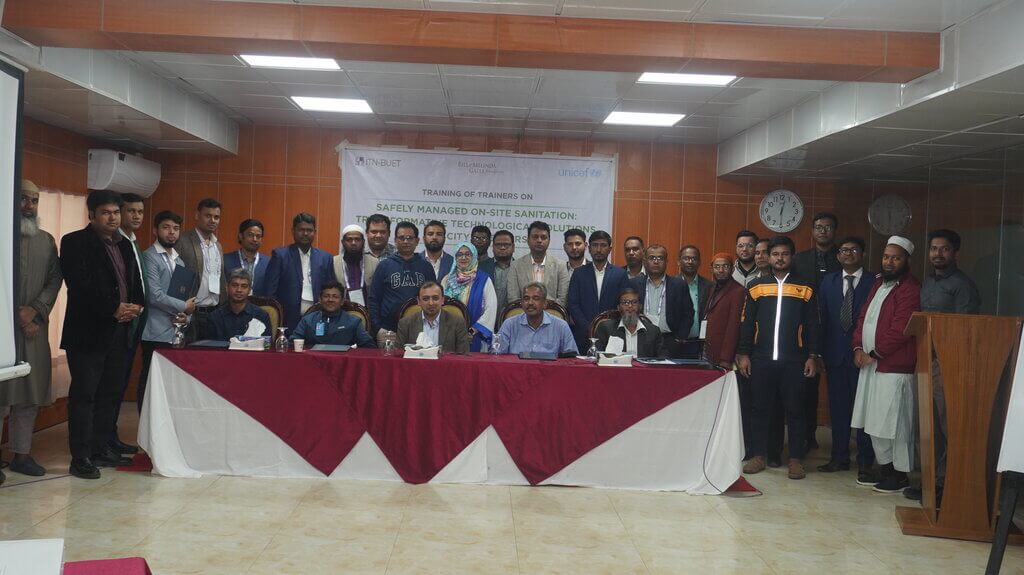
Mr. Alauddin Ahmed, Project Manager of ITN-BUET, graced the opening session as the Chief Guest, while Prof. Dr. Tanvir Ahmed, Director of ITN-BUET, honored the closing session in the same capacity. Dr. Asef Mohammad Redwan, Technology & Knowledge Management Specialist, ITN-BUET; Mr. Md. Azizur Rahman, Research Officer (Technical/Research), ITN-BUET; Nicholas Stafford, Open Innovation Specialist, SCG; Dr. Seema Sukhani, Director, Tellus Habitat, Md Shafiqul Islam, Managing Director, charm Ltd., Hendra Gupta, Deputy Chief Operating Officer, GWSC, Syed Adnan Ibna Hakim, WASH Specialist, UNICEF, Bangladesh, attended as the key resource persons to facilitate the ToT. The three-day training sessions comprehensively covered transformative sanitation technologies, including group discussions and presentations on Aquonic, Neer-Vana, and JOHKASOU on-site sanitation technologies. Participants gained practical insights through case studies and a field visit to the above-mentioned technologies in Korail Slum, Gulshan Lake, and Gulshan-2 for hands-on learning in the operational procedures of these three technologies.
Prof. Dr. Tanvir Ahmed in his concluding remarks stated, “The feedback from the trainees will help enrich the training module and the ToT would be successful when the trainees are able to play the role of a mentor. ITN will create all the enabling factors to make easy execution of training programs in the coming days, but the trainer’s role is critically important in executing training at the city level.” DWASA participant Mr. Sheikh Mohammad Anwar Satter added that “To meet the SDG sanitation goal within 2030, we need to replace existing on-site sanitation technologies with the updated ones.”
Upon completing the ToT, the participants from the three major cities felt motivated to learn more about these innovative technologies and to drive on-site impactful changes in their respective cities.



